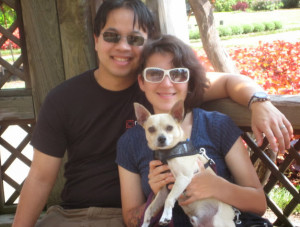
Creator & Owner of Pet Poo Skiddoo
I was a web designer – and a good one at that. I was in a great paying job with a nice cozy office, unfortunately I absolutely hated the fact that I was sitting down all day, staring at a screen. I felt disconnected from the world, from reality, and knew that I needed to get out of there. So four years in, I finally took the leap and left the safety of my career in order to discover what I was really meant to do… of course I had no idea where to start.
Turns out, it’s very difficult to find a job not in computers when your entire background is in computers. I started working retail jobs then ventured into working as a nursing assistant, then animal shelter worker. I liked helping others in need, but my main issue with the job was the lack of control. Anything I saw done that I didn’t agree with, I could not change, and it bothered me greatly.
I decided to create my own business that would combine the two things I really enjoy – being outside with nature and caring for animals. So in 2015, I started a small website that would offer pet sitting, dog walking, and for a unique twist – yard scooping. Little did I know that the yard scooping would soon take over, and voila Pet Poo Skiddoo was born.
Years later, myself and a few other nice folks help out those who are unable to physically scoop their yard themselves or frankly if for those who just don’t like doing it!
